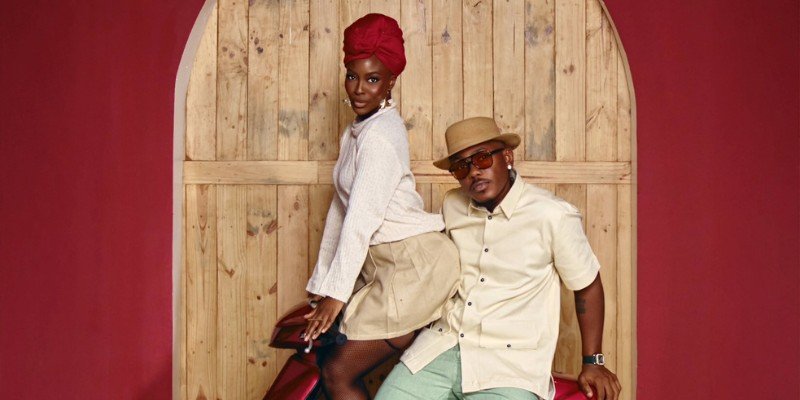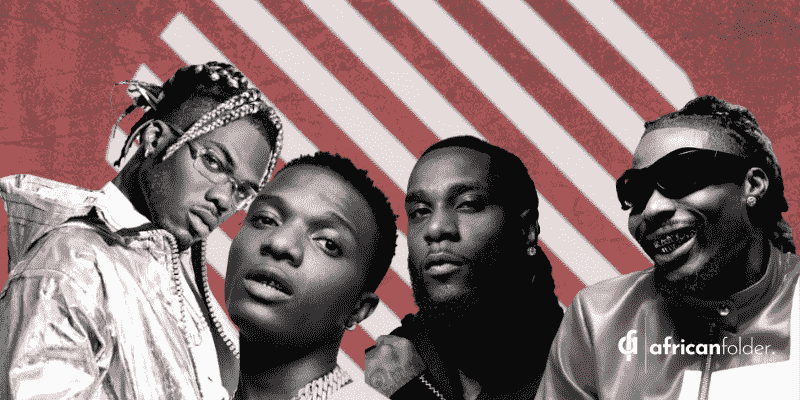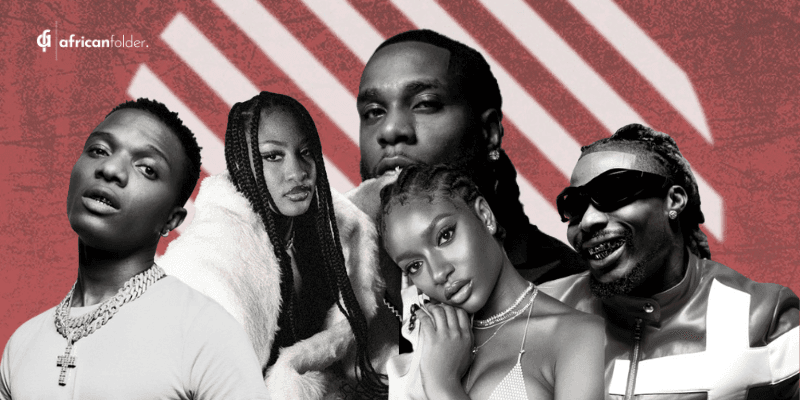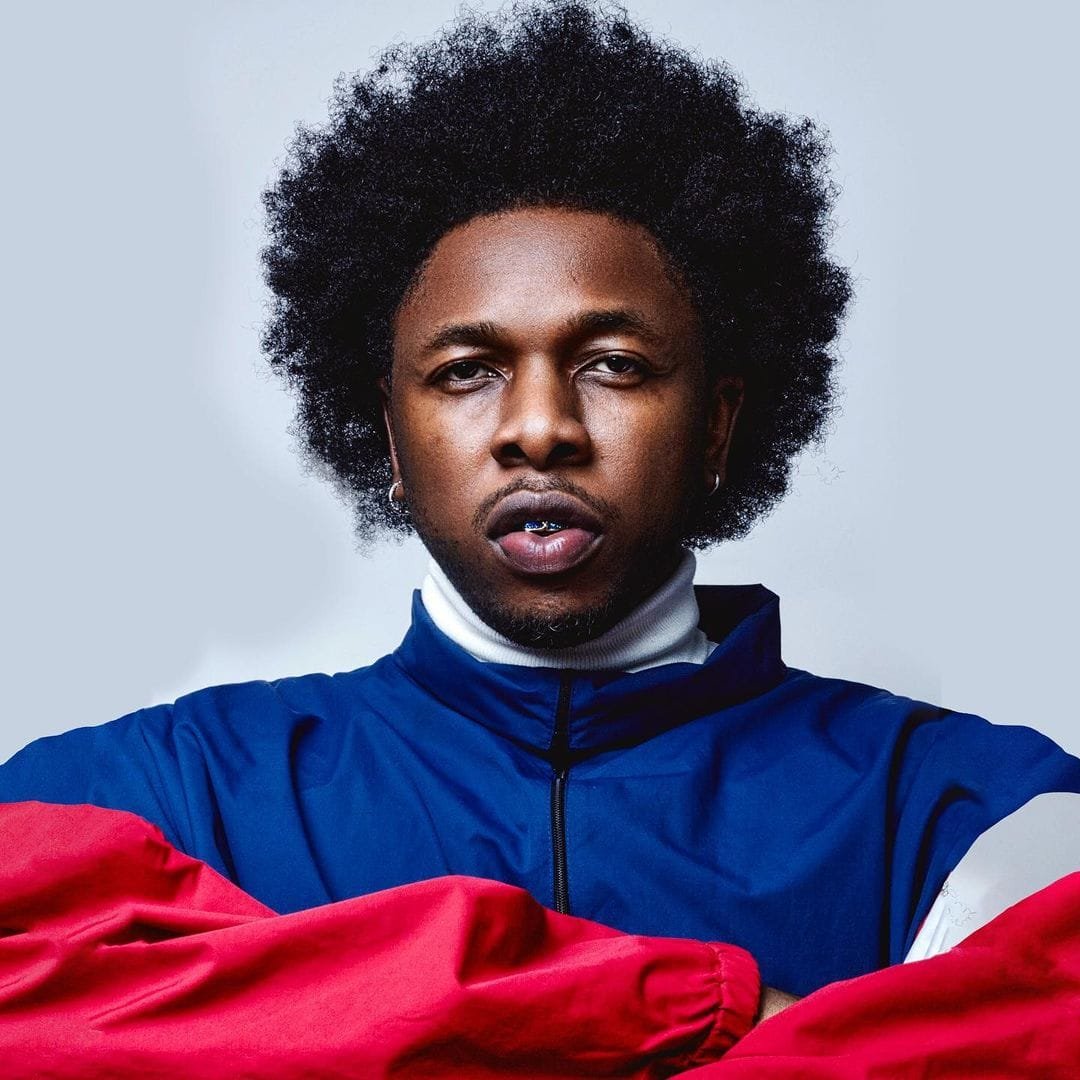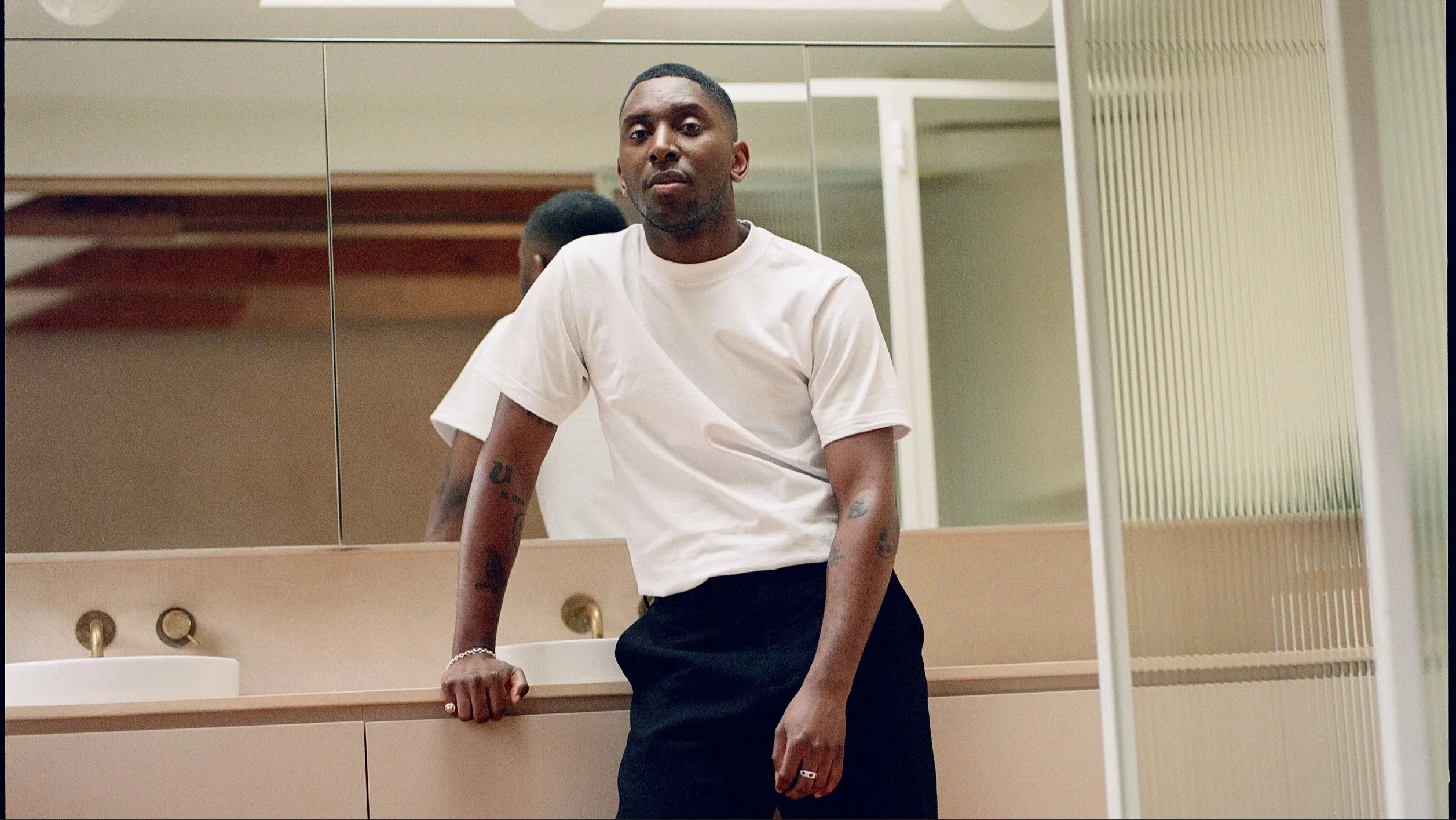Labake Olododo is a Yoruba-themed epic that dares to blend the past, present, and future into one emotional whirlwind. Produced and written by Iyabo Ojo, the film tells the story of Labake, a heroine not typical in her nature, but a fierce female warrior whose strength in battle is rivalled only by the depths of her emotional scars.
After suffering unimaginable loss, Labake decides to trade in her sword for something far more vulnerable: love. But this isn’t just her story. It’s a story that stretches across generations, from the quiet wisdom of her grandmother to the defiant courage of her daughter. In between, the film explores themes of revenge, betrayal, and second chances, all set within a narrative that refuses to be ordinary.
Plot
The film opens with a haunting backstory. A woman in labour struggles to deliver her child, and in the chaos, they summon Iya Agba, a powerful spiritual woman and midwife, who is also the grandmother of Labake. Meanwhile, Ajitoni, Labake’s father, is running to resolve a land dispute but tragically returns home dead.
Fast forward to the present: Labake, now a fierce and undefeated warrior, leads her people into battle. With her supernatural powers, she wins wars effortlessly. Returning to her village, Lukosi, she’s hailed as a hero and honoured with the prestigious Akogun chieftaincy title by the king himself. She lives with her grandmother, Iya Agba, who not only fortifies her powers through spiritual rituals but also handles her meals, ensuring Labake doesn’t eat from outsiders. Labake’s powers are tied to her strict discipline; she doesn’t love, she doesn’t stray, and she keeps her cowrie-laced dada hair intact, enchanted with incantations.
Her close-knit warrior team includes Adigun, who’s hot-headed, power-drunk, and abusive, and Beyioku, her calm and loyal right-hand man. Adigun wields a ring enchanted by Labake, granting him power he constantly abuses, especially over women and villagers. In contrast, Beyioku is rational, kind, and principled.
Meanwhile, in Olugbon village, chaos erupts. Terrorists raid their marketplace, creating unrest. Fearing more violence, the king urges his son, Prince Adeoso, to flee to Ibadan for safety. But the prince, determined to defend his people, stays. The king seeks help from Lukosi, begging Labake to fight on their behalf. Surprisingly, Labake refuses, wanting no involvement. The people of Olugbon take matters into their own hands. Prince Adeoso leads a resistance, which ends in his death. His father, struck with grief, also dies, leaving the queen and Princess Adesewa devastated.
Back in Lukosi, a young, charming bachelor named Jaiye is employed as an English teacher. During a visit to the school, Labake meets Jaiye, and unlike others, he’s confident and not intimidated by her aura. He woos her with boldness and kind words, even penning a sweet letter that melts Labake’s guarded heart. Slowly, Labake begins to change, wearing different clothes, smiling more, and opening up emotionally. This transformation worries Iya Agba, who warns her that love is not her destiny and threatens Jaiye in his dream. The next day, shaken, Jaiye pushes Labake away, claiming he wants nothing to do with her.
Hurt and furious, Labake confronts her grandmother. For the first time, she insists on choosing her own path, one not bound by war or blood. She confides in Beyioku, who surprisingly encourages her to follow her heart. But unknown to Labake, he’s hiding something.
Later, Beyioku visits Jaiye and urges him not to lose focus on “the goal.” A confused Jaye is met with Princess Adesewa, who enters the scene. The big reveal? Jaiye and Princess Adesewa are lovers. Their plan has always been to use Jaiye to infiltrate Labake’s life, learn her weaknesses, and destroy her. The princess blames Labake for the death of her brother and father, believing she led the terrorist attacks on Olugbon. Beyioku, feeling betrayed for being overlooked in favour of Adigun, is in on the revenge plot.
Labake, unaware, falls deeper. One night, she strips herself of her powers, removes her cowries, eats food not prepared by Iya Agba, and sleeps with Jaiye. At her most vulnerable, Princess Adesewa storms in, exposes her, and drags her to the palace. When Labake tries to summon her powers, nothing happens. She’s lost everything.
At the palace, it is revealed that Labake’s entire campaign of terror was revenge. Adeniyi, the king of Olugbon, had killed her father over a land dispute years ago. Her motive was rooted in generational pain.
Now powerless and pregnant, Labake is imprisoned. Iya Agba, devastated by her granddaughter’s downfall, places a curse on Jaiye, leaving him to rot in a mystical forest, his body covered in sores.
The movie loops back to its opening. A young girl playing with classmates near the forest finds something that makes her scream. That girl is Labake’s daughter. She has been listening to her father, Jaiye, tell her this story from the forest. Touched, she seeks out Iya Agba, who helps break the curse and release Jaiye.
Cast
When it comes to Yoruba-themed films like Labake Olododo, there’s a growing concern about casting choices in the industry. The abundance of talented Yoruba actors today means filmmakers have a wide pool to choose from, yet we still see a repeated pattern of crowding films with familiar faces, often not because they fit the roles perfectly, but seemingly for promotional clout.
In this film, some of the star-studded appearances felt unnecessary. For example, Odunlade Adekola and his on-screen wife made brief appearances that added little depth to the story. Their roles could have been assigned to emerging actors who might have brought something fresh. Similarly, the inclusion of actors like Bimbo Akintola and comedic characters such as Broda Shaggi and his friends, while entertaining, sometimes distracted from the central narrative and gave off the sense of casting for PR rather than purpose.
Iyabo Ojo, who not only produced the movie but played the lead role of Labake, brought a lot of intensity to the screen. However, her performance at times felt overplayed. The mannerisms, the piercing stares, her physical stance, the over-pronounced gestures, seemed to aim for intimidation but often fell into the realm of theatrical exaggeration. It lacked the quiet command and nuance we’ve seen from other iconic female warrior characters in Nollywood. That said, some of her scenes stood out, especially those moments where she confidently perched on the throne-like seat, one leg raised. Those subtle choices helped shape Labake’s identity beyond the sword.
The standout performances came from the supporting cast. Tayo Faniran, who played Jaiye, was grounded and convincing, striking a strong emotional balance in his scenes. Olarotimi Fakunle and Alaba Onaolapo, who played Beyioku and Adigun also did a great job in their respective roles, helping to anchor the tension between loyalty and betrayal. In fact, one could argue that Beyioku carried more commanding energy than Adigun, despite the latter’s aggressive character. His presence was quiet yet powerful, which gave his betrayal more weight.
The royal family of Olugbon village also deserves credit. The king and queen delivered their parts with emotional depth, and Scarlet Gomez as Princess Adesewa brought a fierce energy that elevated the film’s climax. Her transformation from quiet grief to calculated vengeance was one of the most engaging arcs in the story. It would’ve been even more compelling if her character had more development, perhaps a backstory to help the audience understand her fire and emotional weight.
In the end, while the cast included some hits and misses, there were clear efforts to bring strength and drama to the screen. However, one hopes that going forward, Yoruba Nollywood begins to prioritise precision over popularity in casting, allowing characters, not celebrity names, to lead the story.
Language
The language in Labake Olododo was predominantly Yoruba, which stayed true to its cultural setting and helped ground the story authentically. There were only a few instances of English, mostly simple expressions, likely for accessibility. The film didn’t try to overreach with multilingual elements, and that worked well for its tone and setting.
Final take
Labake Olododo had its strengths, with costume design standing out as the film’s strongest element, vibrant, detailed, and culturally in tune. Though the fake nudity covers were clearly noticeable and slightly distracting, they served their purpose. The set design felt familiar and recycled, offering little novelty, while CGI was minimal and average but functional.
Labake Olododo had flashes of brilliance, but it struggled deeply with structure, and it shows. From the very beginning, the movie throws the audience into a whirlwind of events with little to no context. The intro felt completely disjointed. It jumped from a woman in labour, to a land dispute, to sudden deaths, and before you could even settle into that storyline, you’re dragged into another setting with wars, a mysterious warrior, village politics, school drama, and terrorist attacks. It was chaotic and not in a thrilling way. It genuinely threw you off, and for a good part of the film, you’re left trying to piece together what’s even going on.
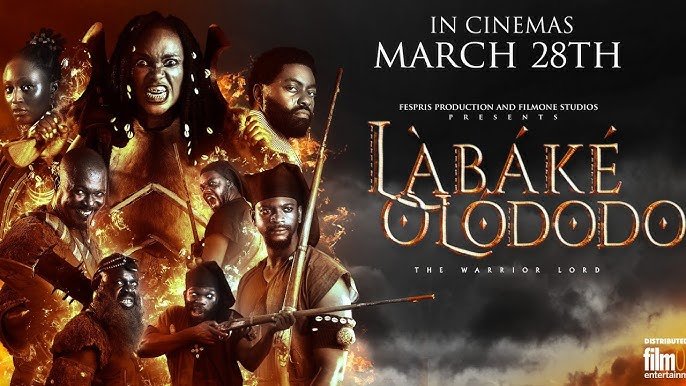
This disjointedness didn’t just affect the intro; it lingered through the first half of the movie. The pacing was all over the place; some parts dragged unnecessarily, while others, especially the most critical ones, were rushed like the filmmakers were racing against time. Somehow, the movie managed to feel slow and rushed at the same time, which is a direct result of weak writing, inconsistent pacing, and poor continuity.
The transitions between scenes weren’t seamless, and emotional peaks were either watered down or completely missed. A good example is the death announcement of Prince Adeoso—a pivotal moment that should’ve delivered emotional depth, but was handled casually, almost jokingly. Moments like that weaken the impact of the plot.
In fairness, the final act tries to clean up the mess and give clarity, and to an extent, it does. The story eventually connects, which shows there was intent behind the madness, but it required a lot of patience to get there. Too much, honestly.
Overall, the execution was passable, but the storytelling, especially at the beginning, was brutally disorganised. With stronger pacing, a tighter script, and better continuity, this could have delivered a far more powerful and engaging experience.








